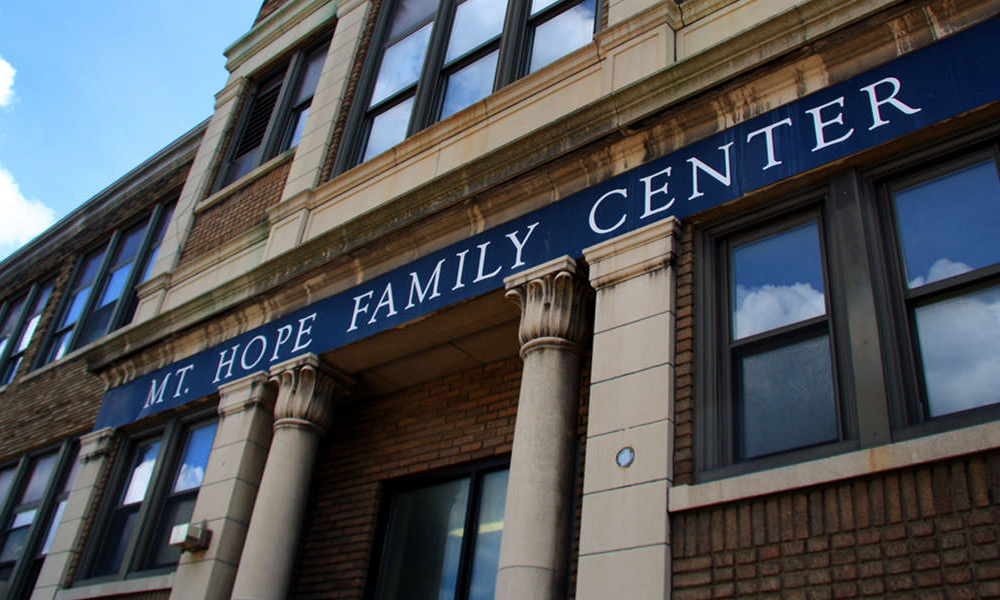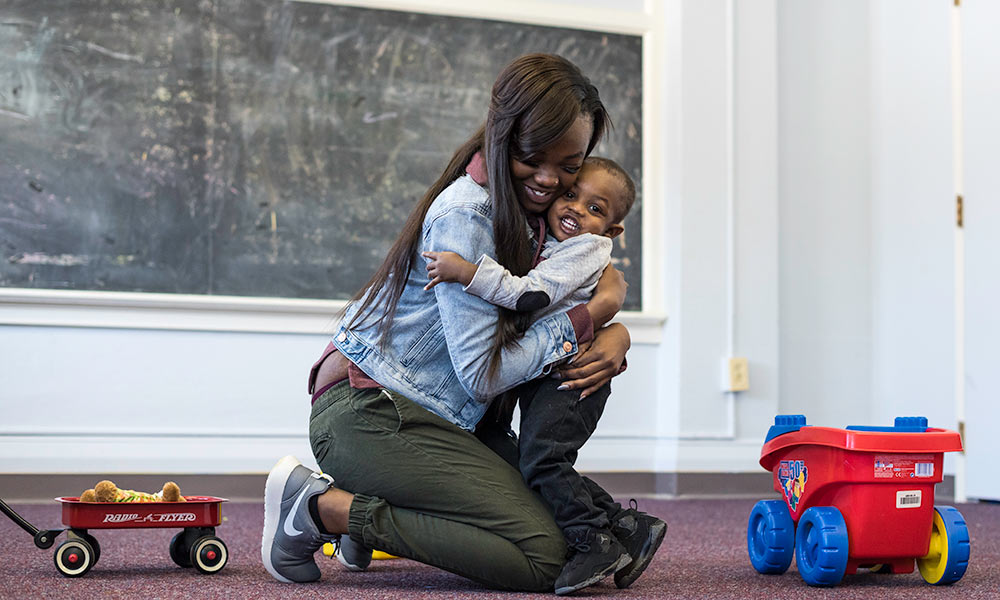The University of Rochester’s Mt. Hope Family Center has received an unexpected boost from the Substance Abuse and Mental Health Services Administration of the US Department of Health & Human Services (SAMHSA) to expand its STRONGER trauma treatment project.
“We were delighted when we were notified by SAMHSA that we were eligible to apply for additional funding,” says Jody Todd Manly, Mt. Hope’s clinical director.
The extra $308,000 are specifically targeted to provide services for children and families from Puerto Rico affected by Hurricane Maria, as well as refugee, immigrant, and unaccompanied international children who may experience symptoms of traumatic stress stemming from their experiences.
The funding comes on top of the current SAMHSA grant of nearly $2 million over five years.
Project STRONGER, an acronym for “Supporting Trauma Recovery Opportunities and Nurturing Growing Emotional Resilience,” is designed to increase the availability of evidence-based trauma treatments for children and families and to promote policies that support trauma-informed care. To do so, Mt. Hope Family Center, which has been part of the National Child Traumatic Stress Network (NCTSN) since 2009, builds upon its existing work with children and families in the child welfare system, as well as with military-affiliated families facing unique stressors, such as a parent’s deployment or family relocation.
The funding is critical, says Manly.
“We know that children who experience traumatic stress can have a range of consequences, from changes in their brain development, physiological functioning, and gene expression, to changes in their relationships, behavior, academic performance, and mental health. All that can have lifelong consequences if not adequately addressed,” says Manly. “Studies, including research conducted here at Mt. Hope, have shown that adversity in childhood can lead to long-term health consequences, or earlier death. But evidence-based treatment can change this and really improve the outcomes for children and their families.”
Depending on individual need, the Mt. Hope project provides several trauma treatment options for children and their caregivers, including alternatives for families—a cognitive behavioral therapy, child-parent psychotherapy, group attachment-based intervention, interpersonal psychotherapy for adolescents, and trauma-focused cognitive behavioral therapy.
The additional funding runs through September, which marks the end of the center’s fiscal year, and allows for the expansion of treatment options. Manly expects to be able to enroll an additional 30 children and their caregivers. Mt. Hope is partnering locally with the Ibero-American Action League, which has experience with helping families affected by the hurricane, as well as Catholic Family Center, and the Rochester City School District.
Mt. Hope has been successful in garnering sizeable grants. Just last September, a multidisciplinary team from Mt. Hope and the University of Minnesota’s Institute for Translational Research in Children’s Mental Health together received a multi-million-dollar grant to create a national center for child maltreatment studies, becoming one of only three academic institutional partnerships in the United States to receive this prestigious award from the National Institutes of Health (NIH).
The NIH’s Eunice Kennedy Shriver National Institute of Child Health and Human Development (NICHD) selected the two universities for a $8.39 million award over five years to create a Capstone Center on Child Abuse and Neglect as a national resource for child maltreatment research and training.
Read more

Mt. Hope Family Center receives $8 million grant to establish national center for child maltreatment studies
The NIH grant will establish the TRANSFORM Center to serve as a national resource for child maltreatment research and training.

At-risk families find research-driven services at Mt. Hope Family Center
Researchers and clinicians provide evidence-based services to nearly 1,000 at-risk families in the Rochester area each year.




